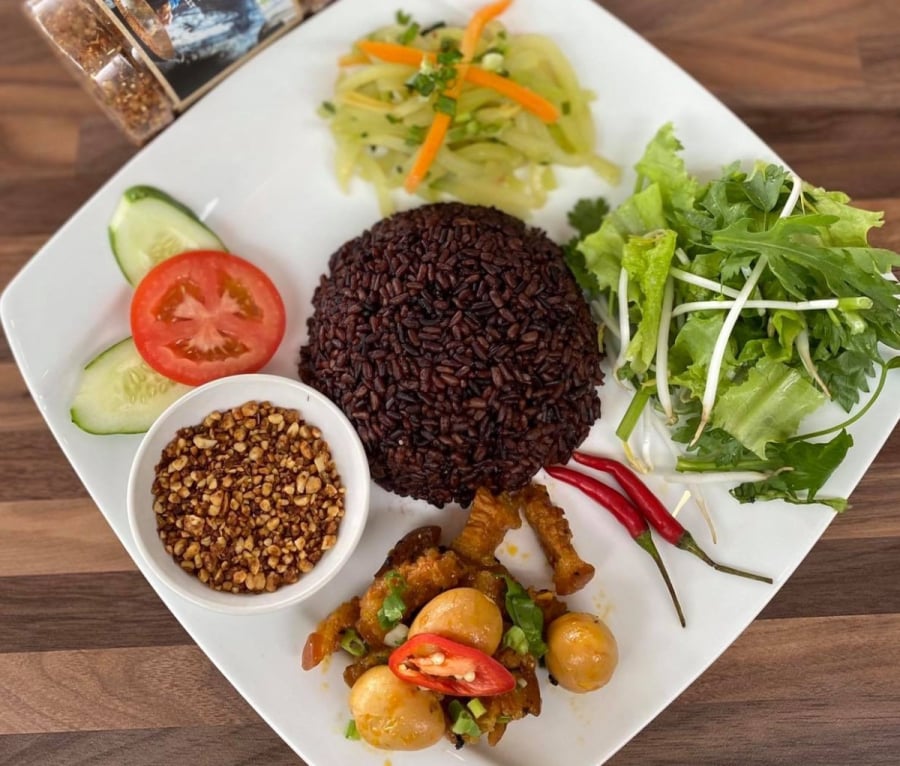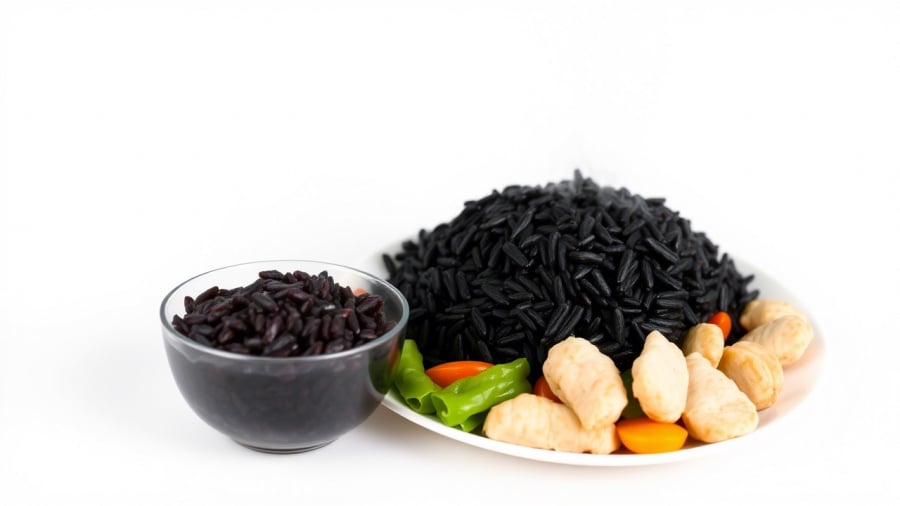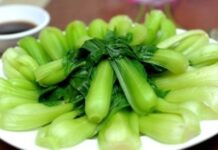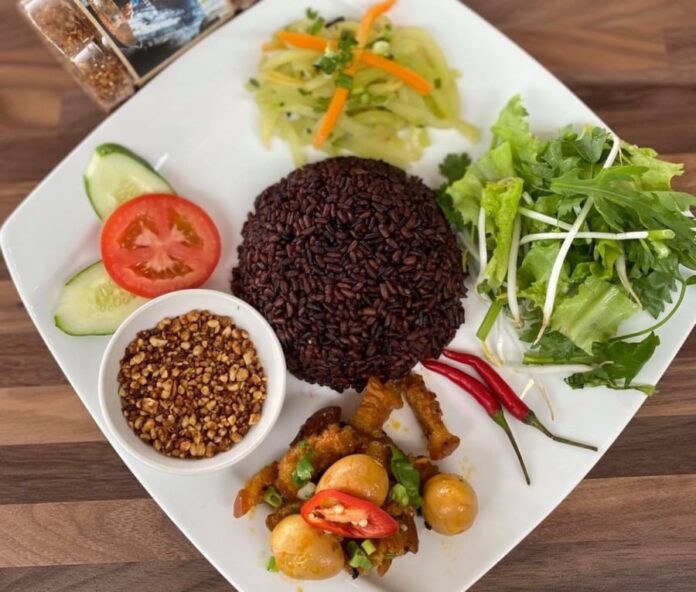Black rice, also known as “forbidden rice,” has long been considered a delicacy in ancient Eastern civilizations, reserved solely for royalty and the upper class. This unique grain has gained prominence due to its exceptional nutritional benefits, especially for those concerned about diabetes, weight management, or cardiovascular health.
So, what makes black rice so revered? Let’s explore its origins and understand why it deserves a place on our tables.
The History and Nutritional Value of Black Rice
Black rice originates from ancient China, where it was known as “forbidden rice” because only the emperor was allowed to consume it. This rice variety not only boasts a delicious flavor but also contains high levels of fiber, B vitamins, and minerals such as magnesium, iron, zinc, and most notably, anthocyanin—a powerful antioxidant commonly found in blueberries and strawberries.
According to PGS.TS Nguyen Thi Lam, former Vice Director of the National Institute of Nutrition, black rice has a higher protein content than regular white rice and is rich in soluble fiber, which aids digestion and effectively controls blood sugar levels. This is why many dietary experts recommend incorporating black rice into our daily meals instead of white rice.
It’s also important to distinguish black rice from sticky purple rice. While both have a similar purple-black hue, black rice is typically harder, less sticky, and more nutrient-dense than sticky purple rice, which is softer and sweeter. Depending on your culinary needs, you can choose the variety that best suits your purposes.

The Amazing Health Benefits of Black Rice
Weight Loss and Weight Management
Did you know that simply swapping white rice for black rice in your daily meals can reduce your calorie intake? Black rice is packed with fiber, which promotes a feeling of fullness, curbing the urge to snack or overeat. A 2020 study published in the American Journal of Nutrition also confirmed that regular consumers of black rice tend to maintain a more stable weight compared to those who eat white rice.
Stable Blood Sugar and Diabetes Management
For those concerned about diabetes, black rice is an excellent choice. According to Doctor Do Thi Ngoc Diep, Director of Ho Chi Minh City Nutrition Center, black rice has a much lower glycemic index than white rice, preventing sudden spikes in blood sugar after meals. Additionally, the high fiber and anthocyanin content in black rice improve insulin sensitivity, aiding in effective blood sugar management.
Cardiovascular Health
The benefits of black rice extend beyond weight management and diabetes. It is also a heart-healthy choice. The soluble fiber in black rice helps lower bad cholesterol (LDL) and prevents atherosclerosis and cardiovascular diseases. Furthermore, anthocyanin, a prominent antioxidant, protects cells from free radical damage, reducing the risk of heart disease.
Antioxidant and Cancer Prevention
Anthocyanin not only benefits cardiovascular health but also possesses anti-inflammatory and cancer-fighting properties. Research has shown that anthocyanin can inhibit the growth of cancer cells, particularly in breast and colorectal cancers. Including black rice in your weekly menu is a simple way to bolster your overall health.

Additional Benefits
Black rice offers even more advantages. It improves sleep quality due to its tryptophan content, a precursor to serotonin and melatonin. It is also beneficial for pregnant women and the elderly, thanks to its abundant folate and calcium content.
Incorporating Black Rice into Your Daily Meals
Black rice is incredibly versatile in the kitchen. You can cook it as rice, porridge, soup, or even use it in baked goods. Here are some suggestions:
– Black Rice: Rinse the black rice thoroughly and soak it for 2-3 hours before cooking to soften the grains. Use a 1:2 ratio of rice to water when cooking.
– Black Rice Porridge: Combine black rice with chicken, salmon, or vegetables for a nutritious porridge.
– Black Rice Pancakes or Buns: Grind black rice into flour and mix it with milk or eggs to make delicious pancakes or steamed buns.
A word of advice when using black rice: since it is high in fiber, start with a small amount if you’re new to it to avoid any digestive discomfort. Also, remember to rinse and soak the rice before cooking to optimize its flavor and nutritional value.
It’s no exaggeration to say that black rice is a “superfood” that every family should include in their daily diet. With its myriad benefits, ranging from weight management and stable blood sugar to improved cardiovascular health and cancer prevention, black rice truly lives up to its name as the “black gold” of grains.
Why not give black rice a try today and experience the positive changes it can bring to your health and well-being? Don’t forget to share this article if you found it useful!
The Magic of Apple Cider Vinegar: A Tummy-Friendly Way to Banish Belly Fat
Apple cider vinegar has long been touted for its health benefits, and for good reason. When consumed in moderation, it can help curb cravings, prevent belly fat accumulation, and provide essential nutrients. This humble liquid is a powerhouse of health benefits, supporting your body in a variety of ways.





































